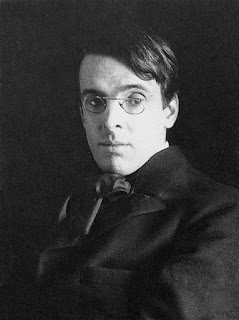Settling The Eternal Debate – 9 Reasons Movies Aren’t Really That Bad
As an avid bibliophile as well as a cinephile I have observed that movies constantly face rebuke and ridicule when compared to the original literary work. This comparison really agitates me because as much as I love curling p with a novel and hot cocoa, I cannot deny the pleasure of laying back with a bag of popcorn and a movie adaptation of something that I have read and loved. Personally, I believe it is unfair to compare them because of the clear limitations that separate them, the most important being they are two vastly different media and meant to appeal to different sensory stimulations. Even so, here I am going to take the stand for movies seeing as how they are criminally undermined by those who I have come to notice are more often than not, self-righteous pretend-bibliophiles.
1. Boringly long books in a concise format – Sometimes the books are just too long. Books that are poorly written but are extremely lengthy and time-consuming are better off made into movies. Some books are only as good as their basic plotlines and the movies make sure the movie is tailored as per the preference of the audience. Sometimes the book and all its aspects are great but they are just too cumbersome to go through. This, I feel is true in the case of Tolstoy or Dostoevsky, who, while great writers, can be extremely tiresome to read and keep track of. The movies based on their works, on the other hand, are more captivating owing to their concision and focus on the relevant parts.
2. Excessive description boils down to a single frame, at most – Minute details of a dress – a button here, a bow there, a brooch elsewhere; this gets quite tiring to imagine and I would much rather just see the stupid dress if it is indeed THAT important. Can you honestly say that Carrie’s description of everything she wore on a daily basis in Sex And The City was not exhausting to read, let alone invest any imagination into? This is especially relevant to the contemporary works where the descriptive passages are not essential to the plot or character and end up feeling like a screenplay in the guise of a novel.
3. Some elements in movies/series are better than the imagination – While reading Pride and Prejudice, sure, you imagined Mr. Darcy as a chivalrous and handsome bloke with a British accent. But can anyone deny that Colin Firth as Mr. Darcy in the BBC series was much better than any Darcy our imaginations could possibly conjure? Or that Firth’s accent was more eloquent and refined than the erratic accent that we might have substituted into the dialogs in the books?
4. Visualizing is more moving – if you have watched scenes relating to death or torture, then you know that the pathos of seeing it is sometimes much deeper than reading about it. imagining somebody’s pain and actually seeing it in front of your eyes are two different things, and I personally feel more sympathetic when I am watching such scenes rather than reading them. The gore and horror of a situation portrayed in movies are usually unimaginable on one’s own unless the experience has been in a personal capacity.
5. Contemporary works adapted from classics fare better on-screen– Most YA and contemporary romance fiction follow the same basic plot with few minor tweaks. Most contemporary works are just modern adaptations of classic novels. If you have read the parent classic and go on to read the modern adaptation, it can be bitterly disappointing. Case in point, Pride and Prejudice and Zombies. If you read it, you will be disappointed immensely. However, if you happen to simply watch the movie, you might take the plot in good humor and feel a lot less bitter.
6. Emotional cues via music – most movies have amazing soundtracks. Even shitty movies have a surprisingly impressive background score. Not only that, but musical cues shape the entire experience and hint at the upcoming plot twist or character revelation. Kisses are made more romantic, murders are made more suspenseful, pain is made more palpable; that and much more, simply by employing the influence of a good background score. This music aided depth that adds to the viewing experience lacks from simply reading a book.
7. Good actors make bad plots good - The superb acting by Robin Wright and Cary Elwes in The Princess Bride, the enchanting Ryan Gosling in The Notebook are some examples of lousy novels turning out to be much better as movies. I despised both these novels but loved the movies, all courtesy of the acting talent.
8. The action sequences are more enjoyable when watching – Reading about sword fights, wrestling/boxing, dinosaurs, killer sharks etc is not nearly as thrilling as watching them with astounding special effects. Compare the book and the movie for The Jurassic Park, Jaws, Fight Club etc and see for yourself.
 9. Non-fiction and biographies are better on screen – I love reading but there are very few nonfiction titles I have been able to get through, no matter how much I might adore the person. Going through the day to day monotony of anyone, even famous personalities can be mind numbingly boring. The prime examples of this are The Social Network and Steve Jobs. I have been extremely curious about Zuckerberg as well as jobs but simply didn’t have the patience to go through every minor and major detail of their life in a written format. The movies came in very handy at this time, covering the important events and scrapping the mundanities.
9. Non-fiction and biographies are better on screen – I love reading but there are very few nonfiction titles I have been able to get through, no matter how much I might adore the person. Going through the day to day monotony of anyone, even famous personalities can be mind numbingly boring. The prime examples of this are The Social Network and Steve Jobs. I have been extremely curious about Zuckerberg as well as jobs but simply didn’t have the patience to go through every minor and major detail of their life in a written format. The movies came in very handy at this time, covering the important events and scrapping the mundanities.
Where do you stand on this eternal debate? What movies did you like better than the books? Please tell us in comments below.




Comments
Post a Comment